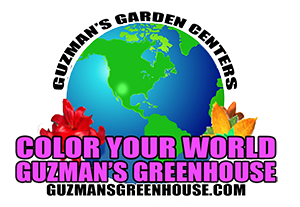Last updated on August 3rd, 2025 at 11:25 am

Is it important to fertilize?
What is fertilizer? Not exactly, but fertilizing matters, especially in the Southwest or dry regions with little rainfall. Plants in these areas often need extra nutrients since natural elements like rain don’t always replenish the soil.
Without proper fertilization, it’s harder for plants to grow healthy and strong in such tough conditions, or where the soil is poor. In other parts of the world where rain is plentiful and the soil is “fertile,” fertilizing is not that important.
Why do your plants need these nutrients? Because in your area, these nutrients may be missing from your soil, and they are needed for continued healthy growth. Without them, your plants would have a challenging time growing, and the chance of disease or insect infestation is more likely.
Potted plants need fertilizer more often because consistent watering will leech out nutrients in your potting soil.
What is fertilizer?
Have you ever wondered what those three numbers on a bag, box, or package of fertilizer mean? How do you analyze them? What about chemicals versus organic? Why do we need to fertilize our plants and trees in the first place? I will answer these questions in the best layman’s terms as possible. We also have a list of organic fertilizers further down this post.
These numbers analyze the amount of Nitrogen, Potash, and Phosphate (NPK). These nutrients are what all plants, trees, flowers, and shrubs need In order for them to thrive and grow.
The Proper Nutrients
You may think I am a bit fanatical, but I consider all plants as people. If you do not take in the proper nutrients, your mind and body will start to deteriorate fast. Well… plants are the same way, they need proper nutrients to survive.
Fertilizers are naturally occurring elements in the soil. In the Southwest, these elements are lacking in soil. Okay, let’s go through the main elements.
Nitrogen is the first number on the product and is referred to by the symbol “N”. Nitrogen is a naturally occurring element in our air, and it is needed by plants to produce green, healthy growth. A higher number in the bag means MORE nitrogen. If your plant, shrub, or tree is turning a yellowish color or hasn’t shown signs of good growth, it needs nitrogen. Rain will also contain small amounts of nitrogen.
Phosphate: The second number and referred to by the symbol P. Plants need phosphate to stimulate healthy root development for flowering and to help in the prevention of disease and stress. The phosphate process combines phosphate rock with sulfur and produces a phosphoric solution. Phosphate helps in the root stimulation and flowering of plants.
When planting flowering trees or shrubs, be sure to use a fertilizer with a HIGH phosphate number. If you are having problems making your plants bloom, then be sure to purchase fertilizer with a high phosphate content. Remember, phosphate and phosphorus are the same.
Potash – This is sometimes referred to as potassium. This is usually the last number and is referred to by the symbol K. This contains minerals and potassium, which are mined from naturally occurring ORE bodies. All plants need this nutrient; potash regulates water balance, enzyme activity, starch and protein synthesis, and nitrogen uptake.
It is important to note that most fertilizers are synthetically made, meaning they are not organic.
These elements can come from the ground, but the soil often lacks these ingredients, thus synthetic or store-bought fertilizers.
There are organic fertilizers, but more on this further down this article.
The soil in the Southwest is Poor
For the most part, the soil in the Southwest, the soil is poor and usually lacks these naturally occurring elements except for phosphorus. The reasons are many, and the two main ones are less rainfall and soil erosion. Poor soil can occur anywhere. Read the following article about “How soil is destroyed” from fao.org.
Civilizations began where farming was most productive. When farm productivity declined, usually as a result of soil mismanagement, civilizations also declined – and occasionally vanished entirely. Read more at: (fao.org)
What is fertilizer?

In what form do fertilizers come in?
- Granular – Takes time to break down and seep into the soil. It may take up to two weeks before we see results.
- Powder – The powder fertilizer should be mixed with water. This speeds up the process. Plants will take in the water/fertilizer mix almost immediately. You should see the results within 3-4 days.
- Liquid – Works the same as with powder. It usually comes in concentrated form. A few drops per gallon will do the job.
- Read the instructions. Always read the instructions on each fertilizer bag/container to ensure the correct amount and applications. Too much could burn your plants…too little and you are basically wasting your time, money, and efforts.
What is Compost
Okay, so what about compost? Compost is the material resulting from composting, the natural process of decomposition of organic waste that yields manure or compost, which is very rich in nutrients. This is also called humus; it is a soil conditioner and an exceptionally good fertilizer. Most compost products have low to medium Nitrogen, phosphorus, and potash levels.
Want to make your own compost? Read more here. Composting Mistakes
A word of caution on buying fertilizer. Do NOT confuse new lawn fertilizer with plant and tree fertilizer. The biggest fertilizing tip of all…be sure that you read the instructions on each and every fertilizer bag.
What About Organic Fertilizers?

Going Organic is Big Right Now
And rightly so! Consumers are looking to incorporate naturally grown vegetables into their diets. This has replaced an earlier sentiment that chemical farming was the only way to produce food efficiently and abundantly.
Organic crops are as plentiful and tasty as organic production, but the main value is to our health by nourishing ourselves with wholesome, unadulterated foods.
To grow organic crops, there are ways to maximize yields in the home garden using organic fertilizers. These plants should be grown without harsh chemicals or pesticides. Below is a list of some of the more common organic fertilizers.
List of Organic Fertilizers
Bat Guano, as the name suggests, is poop from bats. It is high in nitrogen and has high amounts of ammonia and ammonium nitrate. These ingredients make this fertilizer a good product for growing plants fast and organically. Again, nitrogen is the first number on fertilizer products. It comes in a powdered form and works great on vegetable plants.
Blood Meal is another good choice. It comes from the blood of animals. This fertilizer is a high-nitrogen fertilizer and comes from the protein of animal feed; it can also raise the acidic levels of your soil and is usually sold in powder form. Will this help make your plants grow faster? Yes, it will, but just like in real life, you must not overdo it!
Bone Meal – This is another fertilizer that comes from animals. It is what the name suggests: crushed bones from animals. You can use it for trees and flowering plants, and helps your root system grow and flourish. It is a slow-release organic fertilizer. The analysis of bone meal is normally 0-15-0. The middle number is phosphorus, which helps plants flower.
Fish Emulsion – This is an organic fertilizer used by farmers and organic gardeners around the world. It is made from fish and fish parts. It is high in nitrogen with an analysis of about 4-1-1. Nitrogen makes plants greener and grow faster.
Manure – Using manure from landfills or farms as fertilizer can seem like a good idea, but it’s not recommended unless you know what you’re doing. If you don’t have the right knowledge, applying it incorrectly can cause harm to your plants. Too much manure can burn them, leading to damage or even death of your crops. Instead, it’s usually a much safer choice to buy store-bought manure. The companies that create bagged manure take care to mix the right amounts of important nutrients like nitrogen, phosphorus, and potash. This means you don’t have to worry about getting it wrong or hurting your plants. Buying from the store ensures that you’re getting the right stuff in a safe form, making it much easier to help your garden grow strong and healthy.
Cottonseed Meal – is high in nitrogen and perfect for greenery and spurts of growth. It is a slow-release type of organic fertilizer. The one caveat to Cottonseed meal is that it’s made from cotton and as some gardeners know, cotton farmers use lots of pesticides to help in the growth of cotton!
Corn Gluten is also high in nitrogen and, as the name suggests, it comes from corn oil. It can be used in vegetable gardens and is perfect for nice green lawns. Another added benefit from this organic fertilizer is that the corn oil will help prevent weed seeds and other unwanted seeds from germinating.
These are the most common organic fertilizers. There are many more, but these can usually be purchased at most independently owned gardening stores.
Are organic fertilizers harmful?

Using a broadcast spreader will help ensure that you do not over-apply organic fertilizer types into your soil.
Most gardening stores will have these products well-stocked. Ask for the “organic gardening products section” as they are usually placed in a different area of the store.
One good tip is to always water before applying any type of fertilizer. The chances of burning your plants are a lot less if this is done.
How to increase flowering in plants
Plant Root Stimulator.

Greenhouse Manager, Master Gardener, and Webmaster.
If you have any questions or enjoyed this post, feel free to share your thoughts in the comments below.




It is good to know what is in our fertilizers. For me, I would always look for ones with a high nitrogen content. Like you said, nitrogen is very important for plant growth. The more the better!
You are correct Andy Nitrogen is a natural occurring element in our soil. It is what help plants grow and make them green. However, too much can burn the root system so…be careful when using this type of fertilizer.
My garden produced the best yield after using Bat Guano. Plants seem to love this, and you can find out the results within weeks of usage. Great stuff!
I have a Redbud tree that is growing very slowly, Is this a normal process or is there a way to speed up the process?? Any feedback would be greatly appreciated.
Hello, Glenn. Typically the Redbuds are somewhat slow growers. The first year it creeps, the second year is slow but in the third year, it should leap. One big reason many trees grow slowly is a lack of water especially around the Southwest where it rarely rains.
A newly planted Redbud should be receiving about 4-6 gallons of water every day during its first summer. Once it becomes well established you can cut back on your watering.
If you want to speed things up do this every day during spring and the hot summer months. Another thing to do is to fertilize with a good tree/shrub fertilizer. Do this once per month starting in spring and ending in fall.
A word of caution your soil has to drain well if not it could develop root rot.
More information here. The Redbud Trees